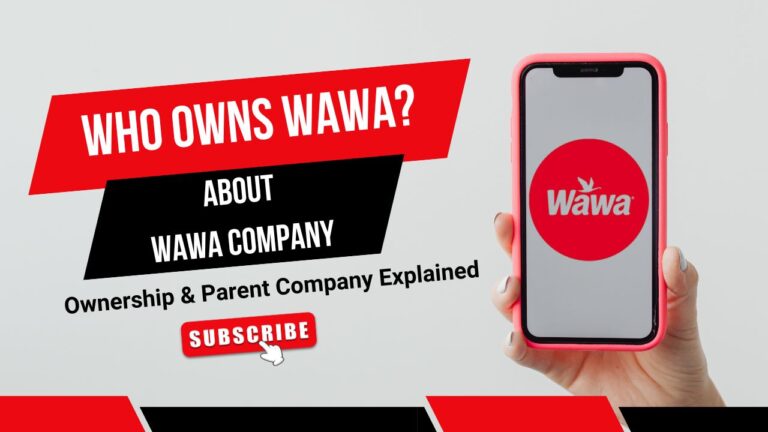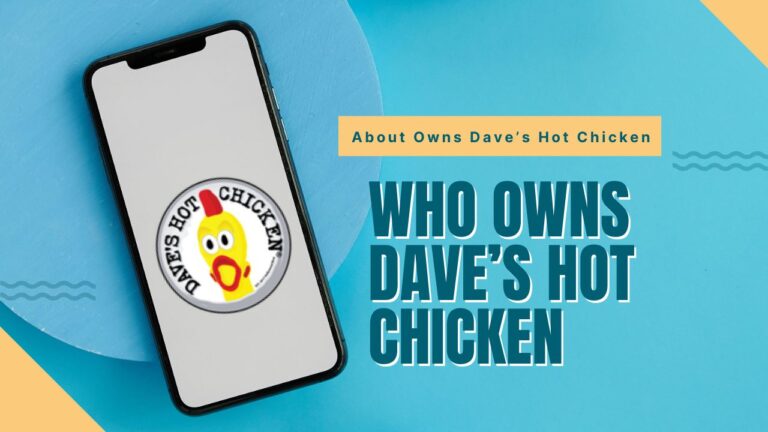Who Owns Sunkist? Ownership & Parent Company Explained
Introduction
Sunkist is one of the most recognizable citrus brands in the world, known for its high-quality oranges, lemons, and other citrus fruits.
Founded over a century ago, Sunkist has evolved into a powerful cooperative that represents thousands of citrus growers in the United States.
Unlike many food and beverage brands that are owned by multinational corporations, Sunkist operates as a cooperative, meaning that the growers themselves collectively own and control the brand.
This model ensures that profits and decision-making power remain with the farmers rather than outside shareholders or private investors.
Despite its deep agricultural roots, Sunkist has successfully expanded beyond fresh fruit into processed products, including fruit juices, soft drinks, and snacks.
The brand has been licensed to major beverage companies, allowing it to remain a household name worldwide. However, many people are unaware of who actually owns Sunkist and how its business structure operates.
This article explores Sunkist’s ownership, its history, and the cooperative framework that keeps it running.
Who is Sunkist’s Parent Company?
Sunkist is owned and managed by Sunkist Growers, Inc., a cooperative of citrus farmers headquartered in Valencia, California.
Unlike a traditional corporation with a centralized ownership structure, Sunkist Growers, Inc. functions as a cooperative, meaning that its growers collectively own and operate the business.
The cooperative structure allows farmers to pool their resources, ensuring better marketing, distribution, and pricing for their citrus products.
By working together, these growers benefit from economies of scale and maintain control over their product’s branding and sales strategies.
While Sunkist is best known for fresh citrus fruits, it also generates revenue through strategic licensing agreements.
Instead of manufacturing Sunkist-branded soft drinks itself, the cooperative grants licensing rights to major beverage companies such as Keurig Dr Pepper in the U.S. and other partners globally.
These companies pay to use the Sunkist name on their products, helping the cooperative expand its brand recognition while focusing on its core agricultural business.
This hybrid model of grower ownership and licensing partnerships has helped Sunkist remain competitive in the global market.
Sunkist Ownership History
Early Beginnings
The origins of Sunkist trace back to the late 1800s when citrus farming in California and Arizona was rapidly growing.
Farmers in the region faced challenges in marketing their produce efficiently, as they often had to deal with fluctuating prices and middlemen who took significant portions of the profits.
To solve these problems, a group of citrus growers came together in 1893 to form the California Fruit Growers Exchange (CFGE), an organization dedicated to marketing and distributing citrus more effectively.
By working as a cooperative, they were able to standardize quality, negotiate better prices, and expand their reach beyond local markets.
Over the next few decades, the cooperative grew steadily, gaining more members and solidifying its role as the dominant citrus marketer in North America.
The group introduced innovations in advertising and branding, ensuring that consumers recognized their fruit as superior in quality.
By the early 1900s, the cooperative adopted the name “Sunkist” as a brand to distinguish its citrus from competitors.
The branding strategy was a game-changer, helping farmers sell more fruit under a unified, trusted name.
Formation of Sunkist Growers, Inc.
As Sunkist became a widely recognized brand, the cooperative decided to officially rename itself Sunkist Growers, Inc. in 1952 to reflect its brand identity more clearly.
This transition allowed the cooperative to strengthen its marketing strategies while continuing to operate under the same grower-owned model.
Unlike private corporations that are driven primarily by profit for external shareholders, Sunkist Growers, Inc. remained focused on maximizing returns for its members—the citrus farmers themselves.
The cooperative ensured that the revenue generated from fruit sales and licensing agreements would go directly back to the growers rather than outside investors.
During the mid-20th century, Sunkist expanded aggressively, developing advanced packaging methods, improving distribution networks, and launching new marketing campaigns.
The cooperative also began forming partnerships with food and beverage manufacturers, enabling Sunkist to enter new product categories beyond fresh fruit.
By licensing the brand to companies producing fruit juices, soft drinks, and other citrus-based products, Sunkist was able to maintain a strong presence in the consumer market while staying true to its agricultural roots.
Sunkist Shareholder Structure
Cooperative Model
Sunkist Growers, Inc. operates as a cooperative, meaning it is owned by the farmers who grow and supply citrus under the Sunkist brand.
This structure differs significantly from traditional corporations, where ownership is determined by stock ownership and financial investments.
In the case of Sunkist, every member grower is a part-owner of the organization, ensuring that profits and decision-making authority remain within the farming community.
This system allows for greater stability and fairness, as growers work collectively to ensure the brand’s long-term success rather than focusing on short-term financial gains.
The cooperative model has been key to Sunkist’s resilience over the years, enabling it to adapt to changes in the agricultural and food industries.
Unlike corporate-owned brands that may shift ownership due to acquisitions or mergers, Sunkist’s cooperative framework ensures that control remains in the hands of its members.
This ownership structure also provides growers with direct access to marketing and distribution channels that they might not have been able to secure on their own.
By pooling resources, growers can maintain competitive pricing and expand their market presence without relying on third-party distributors.
Member Growers and Voting Rights
The cooperative is governed by a board of directors, which is elected by the member growers.
Each grower has voting rights, allowing them to have a say in key business decisions, from marketing strategies to pricing models.
This democratic structure ensures that Sunkist’s operations align with the interests of the farmers, rather than being dictated by outside investors seeking short-term profits.
The cooperative model prioritizes stability and long-term growth, benefiting both small and large citrus producers.
Sunkist growers receive financial benefits in the form of dividends and revenue-sharing based on their contributions to the cooperative.
The more fruit a grower supplies to Sunkist, the greater their share of the profits. This system creates an incentive for high-quality citrus production while ensuring that smaller farms still have a voice in decision-making.
By maintaining this farmer-centric approach, Sunkist has remained a trusted and successful brand in the citrus industry for more than a century.
Conclusion
Sunkist stands out as a unique entity in the food and beverage industry because it is not owned by a single corporation but by thousands of citrus growers through a cooperative system.
Unlike traditional beverage brands that operate under large multinational corporations, Sunkist Growers, Inc. ensures that its profits benefit the farmers who cultivate its citrus.
The cooperative has successfully leveraged its brand by licensing it to major companies, allowing Sunkist products to appear in diverse categories such as soft drinks, candies, and juices while keeping the core citrus business strong.
Through its cooperative structure, Sunkist has maintained control over its operations while ensuring fair compensation for its growers.
This approach has enabled the brand to thrive for over a century, adapting to changes in the agricultural sector while expanding its market presence worldwide.
By prioritizing the interests of its farmer members and leveraging strategic partnerships, Sunkist continues to be a leading name in the citrus industry.
Frequently Asked Questions About Sunkist
1. Who owns Sunkist?
Answer: Sunkist is owned by Sunkist Growers, Inc., a cooperative of citrus farmers. The growers collectively control the brand and its operations.
2. Is Sunkist a private company?
Answer: No, Sunkist is a cooperative, not a privately owned corporation. It is owned by thousands of citrus farmers in the U.S. and Canada.
3. Who manufactures Sunkist soft drinks?
Answer: Sunkist licenses its brand to Keurig Dr Pepper in the U.S. and other beverage companies worldwide. The cooperative itself does not produce soft drinks.
4. How does the Sunkist cooperative work?
Answer: Farmers who are part of the cooperative supply citrus to Sunkist and share in the profits based on their contributions. They also have voting rights in business decisions.
5. When was Sunkist founded?
Answer: Sunkist traces its roots back to 1893, when citrus growers formed the California Fruit Growers Exchange, later renamed Sunkist Growers, Inc. in 1952.
6. What products does Sunkist offer?
Answer: Sunkist primarily sells fresh citrus fruits like oranges, lemons, and grapefruits. The brand is also licensed for juices, soft drinks, candies, and snacks.
7. Where is Sunkist headquartered?
Answer: Sunkist Growers, Inc. is headquartered in Valencia, California, where it oversees marketing, distribution, and licensing operations.
8. Is Sunkist available worldwide?
Answer: Yes, Sunkist products are sold globally. While fresh citrus is mainly distributed in North America, licensed Sunkist beverages and snacks are available internationally.
9. Can anyone buy shares in Sunkist?
Answer: No, Sunkist is a grower-owned cooperative, meaning only citrus farmers who supply fruit to Sunkist can be members and share in its profits.
10. What makes Sunkist different from other citrus brands?
Answer: Sunkist operates as a cooperative, ensuring profits go directly to the farmers. Its strong branding and global licensing deals also set it apart in the industry.


